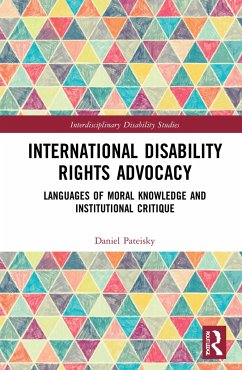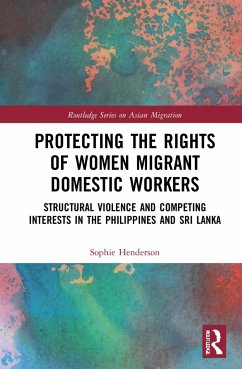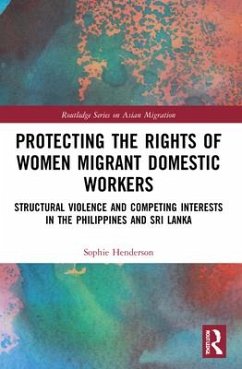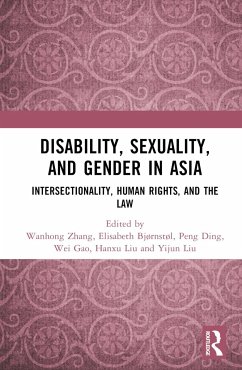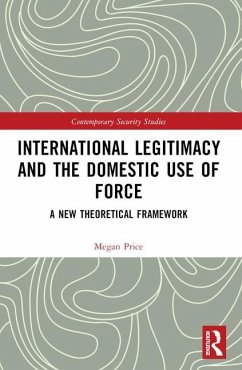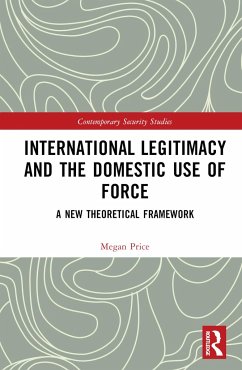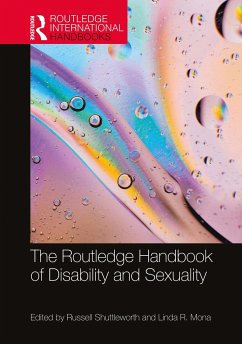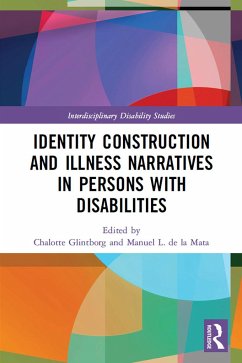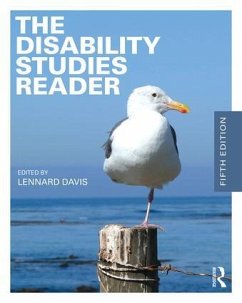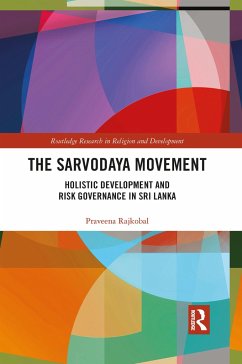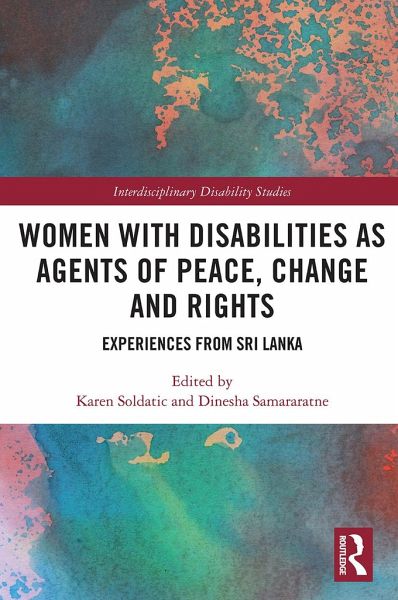
Women with Disabilities as Agents of Peace, Change and Rights
Experiences from Sri Lanka
Herausgegeben: Soldatic, Karen; Samararatne, Dinesha

PAYBACK Punkte
22 °P sammeln!
Drawing on rich empirical work emerging from core conflict regions within the island nation of Sri Lanka, this book illustrates the critical role that women with disabilities play in post-armed conflict rebuilding and development.This pathbreaking book shows the critical role that women with disabilities play in post-armed conflict rebuilding and development. Through offering a rare yet important insight into the processes of gendered-disability advocacy activation within the post-conflict environment, it provides a unique counter narrative to the powerful images, symbols and discourses that t...
Drawing on rich empirical work emerging from core conflict regions within the island nation of Sri Lanka, this book illustrates the critical role that women with disabilities play in post-armed conflict rebuilding and development.
This pathbreaking book shows the critical role that women with disabilities play in post-armed conflict rebuilding and development. Through offering a rare yet important insight into the processes of gendered-disability advocacy activation within the post-conflict environment, it provides a unique counter narrative to the powerful images, symbols and discourses that too frequently perpetuate disabled women's so-called need for paternalistic forms of care. Rather than being the mere recipients of aid and help, the narratives of women with disabilities reveal the generative praxis of social solidarity and cohesion, progressed via their nascent collective practices of gendered-disability advocacy.
It will be of interest to academics and students working in the fields of disability studies, gender studies, post-conflict studies, peace studies and social work.
This pathbreaking book shows the critical role that women with disabilities play in post-armed conflict rebuilding and development. Through offering a rare yet important insight into the processes of gendered-disability advocacy activation within the post-conflict environment, it provides a unique counter narrative to the powerful images, symbols and discourses that too frequently perpetuate disabled women's so-called need for paternalistic forms of care. Rather than being the mere recipients of aid and help, the narratives of women with disabilities reveal the generative praxis of social solidarity and cohesion, progressed via their nascent collective practices of gendered-disability advocacy.
It will be of interest to academics and students working in the fields of disability studies, gender studies, post-conflict studies, peace studies and social work.





